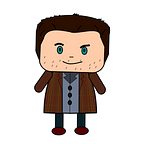To an economist, ‘capital’ doesn’t mean money!
(Introduction to Economics, Lesson 18)
If you want to produce a product — it could be a car or a simple chocolate bunny — there are many things you are going to need in order to get the job done. These ‘things’ are often divided into three broad categories — Land, Labour and Capital. These are known as the ‘factors of production.’
‘Land’ essentially refers to all natural resources. ‘Labour’ refers to people, whether they are workers or managers. Capital, however, is not what you might think. It’s not money! ‘Capital’ actually refers to the man-made things that aid in the production process. It could refer to something as simple as a hammer or a screwdriver — or it could refer to a huge factory.
If this sounds a bit Business-Studies-like — just making up terms for things to make ourselves sound clever — it’s actually much more important than that. You see, what’s particularly useful about this system of categorising the factors of production, is that it highlights the special nature and importance of capital and the role of capital in determining the economic welfare of our entire society.
Here’s the critical thing: We can, in theory, increase the ‘land’ resources available to us. We could, for example, invade France. Or, we might search for and discover oil. Often, however, we’re rather…
